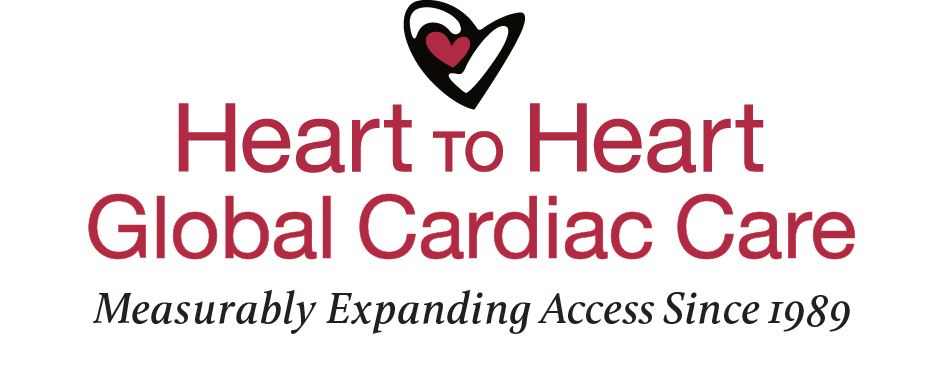Volunteer spotlight: Mark Cocalis, MD
Dr. Mark Cocalis is a pediatric cardiologist at UCSF Benioff Children’s Hospital, San Francisco. Last month, he traveled with us to Kaliningrad, Russia. This was Mark’s 8th trip with Heart to Heart and his first time teaching at our Kaliningrad site.
Mark and his wife Lisa, also a pediatrician, live in the San Francisco Bay Area. They have two adult children, and just a few days ago they became grandparents to baby Serena. In his free time, Mark loves going for jogs with Apple, one of his three Weimaraner dogs. (Apple’s barking is also Mark’s text message notification on his phone!)
Mark is one of those people with seemingly boundless energy. In Kaliningrad, he organized runs at sunrise for members of the Heart to Heart team before heading to the hospital where he presented cardiology lectures to our Russian colleagues and performed echocardiograms on our young patients. On this mission, under Mark’s guidance, the Heart to Heart-Kaliningrad team examined 75 congenital heart patients of all ages.
We sat down with Dr. Cocalis and asked him a few questions about his involvement with Heart to Heart.
Dr. Cocalis, first, can you tell us why you volunteer?
Because I like to give back to community. Day to day I work in the small community of UCSF, which is part of the large community of the San Francisco Bay Area. Volunteering with Heart to Heart gives me opportunity to work in the larger community of the world.
And why do you volunteer for Heart to Heart specifically?
I like the concept of Heart to Heart, which is to teach more than it is to go in and only focus on doing procedures. I think you help more people and make a much bigger difference by going into a place for consecutive years to help them build their own program. That’s a self-sustaining solution.
Can you talk a little bit about what you do on a mission with Heart to Heart?
I do the same work on these trips as I do at home (at UCSF). I examine patients, I have meetings with large groups, and I discuss and help determine treatment plans for each individual patient. It’s not like that with other groups you volunteer with.
It’s clear that you place a very high value on education. How does that affect your work with Heart to Heart?
Well, that’s the most important thing we do. If you look at each isolated group here – the surgical team, the ICU – they’re all fantastic. We educate them on how we work as a team. Education in general is the theme of Heart to Heart. We’re here to help train them to go beyond their self-perceived limitations.
Is there a particular moment on a trip that impacted you?
One special moment, no. All three sites I’ve been to – Samara, Rostov-on-Don, and now Kaliningrad – have been interesting in their own way. I guess a moment that comes to mind was (Heart to Heart) leaving Samara for the last time, and realizing they were a program that would be comfortable operating in the United States. Their program was certainly up to U.S. standards.
Any other thoughts you’d like to share?
I’ve always been impressed with the hard work, desire to move forward, and warmth of our Russian colleagues. They put great effort into welcoming us and taking care of their patients, just like doctors everywhere. It’s great to see their progress from one year to the next.
Many thanks to Mark – and his fellow medical volunteers in the Heart to Heart family – for helping advance heart care for children throughout the heartland of Russia!

